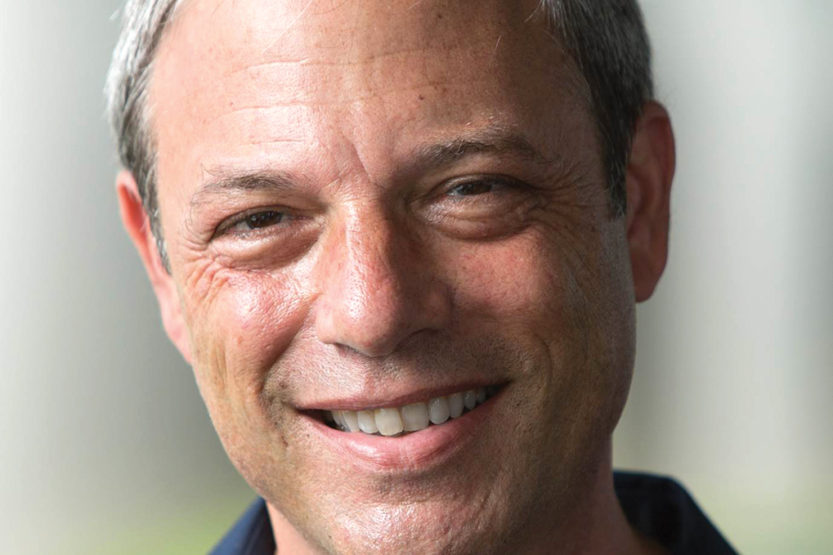The brain defense
 “Weinstein’s case was the first time a brain scan was admitted as evidence,” says Kevin Davis, author of The Brain Defense. “[The] courts now have a better understanding of the impact a brain injury can have on human behavior.” (Image by Minha Aamer)
“Weinstein’s case was the first time a brain scan was admitted as evidence,” says Kevin Davis, author of The Brain Defense. “[The] courts now have a better understanding of the impact a brain injury can have on human behavior.” (Image by Minha Aamer) Kevin Davis, ’85 MEDIA, is author of The Brain Defense: Murder in Manhattan and the Dawn of Neuroscience in America’s Courtrooms. An assistant managing editor at the ABA Journal in Chicago, he has written two other books and reports extensively on crime.
What precipitated The Brain Defense?
The book starts with the story of a calm, mild-mannered ad exec named Herbert Weinstein, who had a fight with his second wife about their grown children one night in their 12th-floor Manhattan apartment. She got so enraged that she scratched him in the eye, and he lunged for her throat and squeezed it until she fell to the floor. He panicked and dragged her body to the window and threw her out.
Weinstein had never committed a violent act in his life. His lawyer sent him for psychiatric and medical tests, and they found a cyst the size of an orange growing inside his brain. It became a battle in court whether to allow the images in the trial. Ultimately, the judge ruled they were admissible as evidence of the defendant’s inability to control his impulsive behavior. Weinstein struck a deal and got seven to 21 years.
Has the brain defense become more common?
Definitely. Weinstein’s case was the first time a brain scan was admitted as evidence, and courts now have a better understanding of the impact a brain injury can have on human behavior. Most of the cases involve violence crimes, usually murder, because scans are very expensive. It also has come up in cases of concussion and with veterans returning home with traumatic brain injuries. The brain defense does not meet the standard of legal insanity, but it can lessen the severity of a sentence, or get people into treatment instead of incarceration.
When and why did you decide to become a writer?
The University of Illinois had a huge impact on my decision to pursue journalism. I had a professor, Bob Reid, who instilled this sense of purpose, and the idea that social justice is important. Working on The Daily Illini also deepened my passion for journalism. The friends I made at Illinois have turned out to be lifelong friends. It was a good group and a special time.

